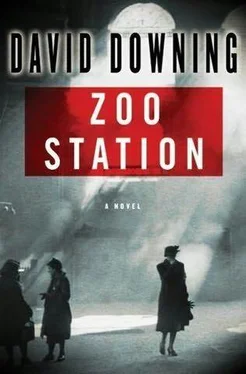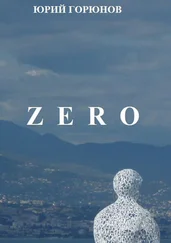David Downing - Zero Station
Здесь есть возможность читать онлайн «David Downing - Zero Station» весь текст электронной книги совершенно бесплатно (целиком полную версию без сокращений). В некоторых случаях можно слушать аудио, скачать через торрент в формате fb2 и присутствует краткое содержание. Жанр: Шпионский детектив, на английском языке. Описание произведения, (предисловие) а так же отзывы посетителей доступны на портале библиотеки ЛибКат.
- Название:Zero Station
- Автор:
- Жанр:
- Год:неизвестен
- ISBN:нет данных
- Рейтинг книги:5 / 5. Голосов: 1
-
Избранное:Добавить в избранное
- Отзывы:
-
Ваша оценка:
- 100
- 1
- 2
- 3
- 4
- 5
Zero Station: краткое содержание, описание и аннотация
Предлагаем к чтению аннотацию, описание, краткое содержание или предисловие (зависит от того, что написал сам автор книги «Zero Station»). Если вы не нашли необходимую информацию о книге — напишите в комментариях, мы постараемся отыскать её.
Zero Station — читать онлайн бесплатно полную книгу (весь текст) целиком
Ниже представлен текст книги, разбитый по страницам. Система сохранения места последней прочитанной страницы, позволяет с удобством читать онлайн бесплатно книгу «Zero Station», без необходимости каждый раз заново искать на чём Вы остановились. Поставьте закладку, и сможете в любой момент перейти на страницу, на которой закончили чтение.
Интервал:
Закладка:
“It does bring a tear to the eye,” Russell said. “Is it going to make you famous?”
“Shouldn’t think so. But the money’s good, and it will involve some acting.”
“But no breast-flaunting.”
“I only do that for you,” she said, pulling the nightdress open.
After he’d walked effi to the theater for the Barbarossa matinee, Russell ate a snack lunch at the Zoo Station buffet, climbed up to the elevated platforms, and sat watching the trains for a while. It was something he and Paul did on occasion, marveling at the long lines of carriages snaking in across the bridge from Cologne or Paris or the wonderfully named Hook of Holland. Today, though, he waited in vain for a continental express. There were only the neat little electric trains of the Stadtbahn, fussing in and out of the local platforms.
He walked around the northern wall of the zoo and, for want of something better to do, headed home along the Landwehrkanal. It had been a long time since he’d spent a Saturday afternoon in Berlin alone, and he felt unexpectedly disoriented by the experience. To make matters worse it was the sort of winter day he hated: gray, damp, and almost insultingly warm. Even the canal smelled worse than usual.
When he reached home Frau Heidegger was lying in wait. Schacht’s long-expected dismissal as President of the Reichsbank had been all over the front pages that morning, and she was worried about how this might affect share prices. “My Jurgen’s family gave me some Farben shares after the war,” she explained, after press-ganging him in for coffee. “Just a few, you understand, but I always thought they might come in handy in my old age.”
Russell reassured her that Schacht’s dismissal was unlikely to have any lasting effect. Unlike the coming war, he added to himself. Or her coffee.
“The Fьhrer’s angry with the Czechs,” she said from the kitchen, as if following his thoughts.
“What about?” Russell asked.
“Does it matter?” she asked, coming in with the familiar pot.
“No,” he agreed. He was often surprised by Frau Heidegger’s perceptiveness, and surprised that he could still be surprised.
“I told my brother-in-law what you said about air defenses,” she went on. “He said he hoped you were right.”
“So do I,” Russell agreed again.
After climbing the stairs to his apartment he wished he hadn’t: The combination of muggy weather and full throttle heating had made it feel like the hot room of a Turkish bath. He tried opening a window, but there was no welcome hint of cooler air. He tried reading, but nothing seemed to stick.
He went out again. It was just after four-he had about six hours to kill. He walked south down Belle-Alliance Strasse to Viktoria Park, climbed to the brow of the Kreuzberg, and found an empty bench with a view across the city. There was even a slight breeze.
The sky darkened, and his mood seemed to darken with it.
He thought about Effi and the film. They’d had fun that morning, but it was a pretty disgusting piece of work. Did she have any qualms about doing it? She hadn’t said so. He couldn’t believe she needed the money, and he’d heard her views on the Nazi attitude toward women often enough. So why was she doing it? Should he ask her? Was it possible to ask someone a question like that without making it an accusation?
He decided it wasn’t, but later that night, halfway down an empty street on their way home from the theater, he asked it anyway.
“To make a living?” she answered sarcastically.
“But you don’t…” he said, and stopped himself. But not soon enough.
“Lots of people think that because my family is rich, I’m rich,” she said coldly. “I took the flat when they offered it. Ten years ago. And I haven’t taken anything since.”
“I know.”
“Then what…”
He sighed. “It’s just so sordid. I hate the idea of you playing in something… in playing a part that goes against everything you believe.”
“That just makes it more of a challenge.”
“Yes, but the better you do it, the more convincing you are, the more women will think they have to accept all this nonsense.”
She stopped in her tracks. “Are we talking about my work or yours?” she asked. “How about your paean to Strength Through Joy cruises? Or your ‘car for every German worker’ piece. You’ve hardly been cutting the ground from under their feet.”
He bit back the surge of anger. She was right.
They both were.
The next afternoon, he went to the Plumpe. Paul had asked him for a program, and with Effi visiting her family that seemed a good enough reason for going. He had Thomas and Joachim for company, but he missed Paul, and the game itself was dire-a dull 1-1 draw with Berliner SV. Thomas was subdued-like Frau Heidegger and 75 million other Germans he’d noticed the telltale flurry of government antagonism toward the Czechs. Sandwiched between SV supporters on the southbound U-bahn they arranged to have lunch on the following Thursday.
Back at the apartment he found a courier delivery waiting for him: a copy of the previous day’s Pravda, complete with his first article. His Russian wasn’t that good, but as far as he could tell they hadn’t altered anything. “Approved by the SD, approved by the NKVD,” he thought out loud. “I should have been a diplomat.” More gratifying still was the accompanying bank draft in Reichsmarks.
There was also the promised list of suggestions for future articles. The last-but-one letters of the opening sentence-who thought up this stuff?-spelled Cracow. Russell groaned. Two 16-hour train journeys, just for a chat with Shchepkin. At least, he hoped it was just for a chat.
Zygmunt’s Chapel
“This is it,” McKinley said, with the sort of enthusiasm others reserved for stumbling across El Dorado. The object of his excitement was a short cul-de-sac of decaying tenement blocks wedged between railway arches, small industrial workshops, and the Neukцllner Schiffahrtkanal. One forlorn streetlight threw a faint yellow glow over glistening brickwork and rusty iron. It looked, Russell thought, like the sort of place a particularly sentimental German communist would come to die.
They had been looking for it for almost an hour, ever since playing hide-and-seek with their probably imaginary Gestapo tail in the Neukцlln branch of the KaDeWe department store. The object of their quest had, according to McKinley, told them to make sure they were not followed, and he had done his best to oblige, leading Russell into the store by the main entrance and out through the kitchens, pursued only by the shouts of an enraged chef. They had then headed east on foot, turning this way and that down a succession of rapidly darkening and profoundly unwelcoming streets. Russell had expected streams of workers returning home, but they had only come across a few, and McKinley’s requests for navigational assistance had been met with either guarded suspicion or outright hostility. Russell had wondered whether the young American could feel the money burning a hole in his pocket. There were lights behind the curtains of the residential streets, but they felt far away.
This street, Schцnlanker Strasse, was no exception. The block they were looking for was the last, pushed up against the elevated tracks of what was probably a freight line. As they reached the entrance another source of light came into view-the red glow of a signal hanging in the darkness.
The limp swastika hanging over the entrance looked like it hadn’t been washed since 1933. Entering the dimly lit hall, they found the concierge’s door. McKinley tried two taps with the door-knocker-too softly, Russell thought, but the door swung open almost immediately. A middle-aged woman with a rather striking face ushered them inside and quickly closed the door behind them.
Читать дальшеИнтервал:
Закладка:
Похожие книги на «Zero Station»
Представляем Вашему вниманию похожие книги на «Zero Station» списком для выбора. Мы отобрали схожую по названию и смыслу литературу в надежде предоставить читателям больше вариантов отыскать новые, интересные, ещё непрочитанные произведения.
Обсуждение, отзывы о книге «Zero Station» и просто собственные мнения читателей. Оставьте ваши комментарии, напишите, что Вы думаете о произведении, его смысле или главных героях. Укажите что конкретно понравилось, а что нет, и почему Вы так считаете.












